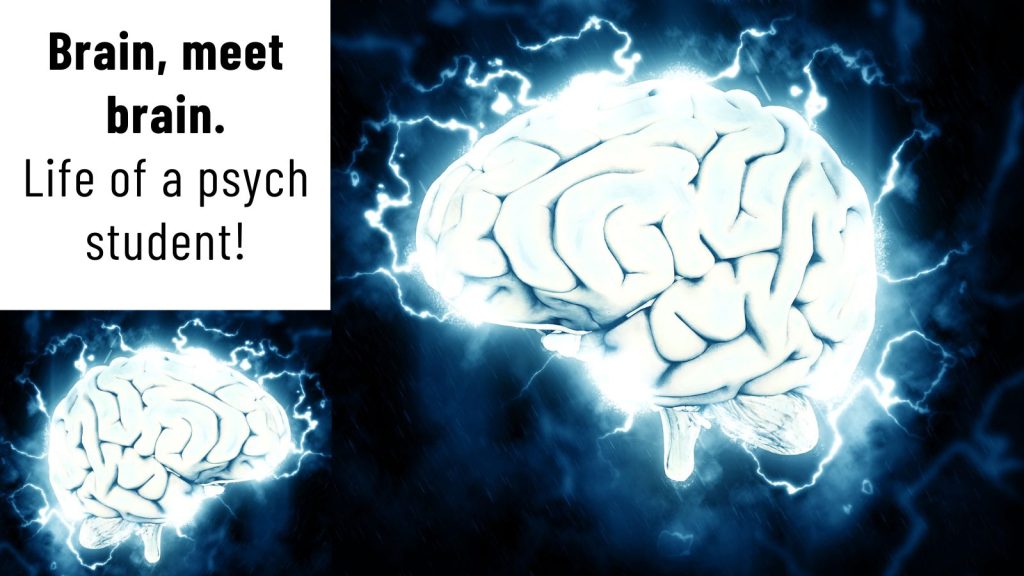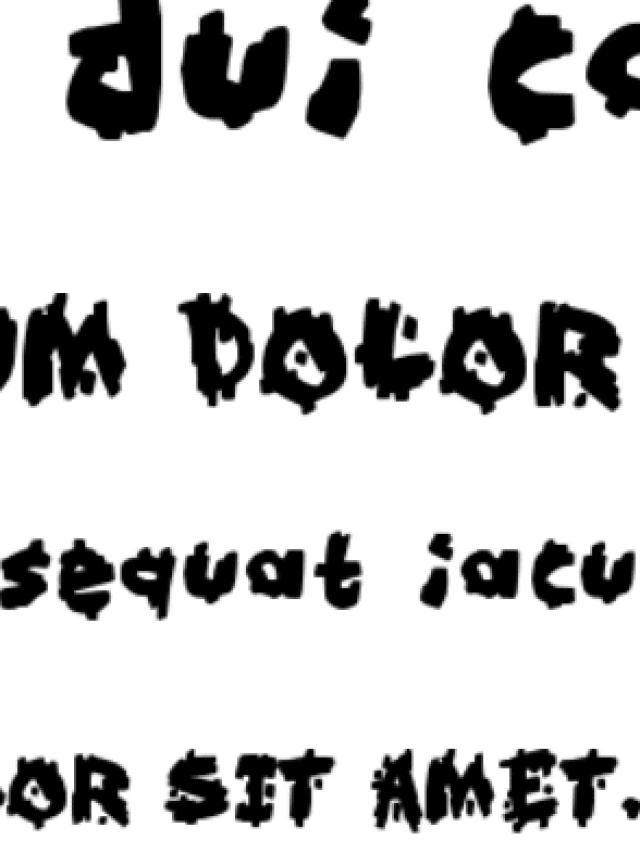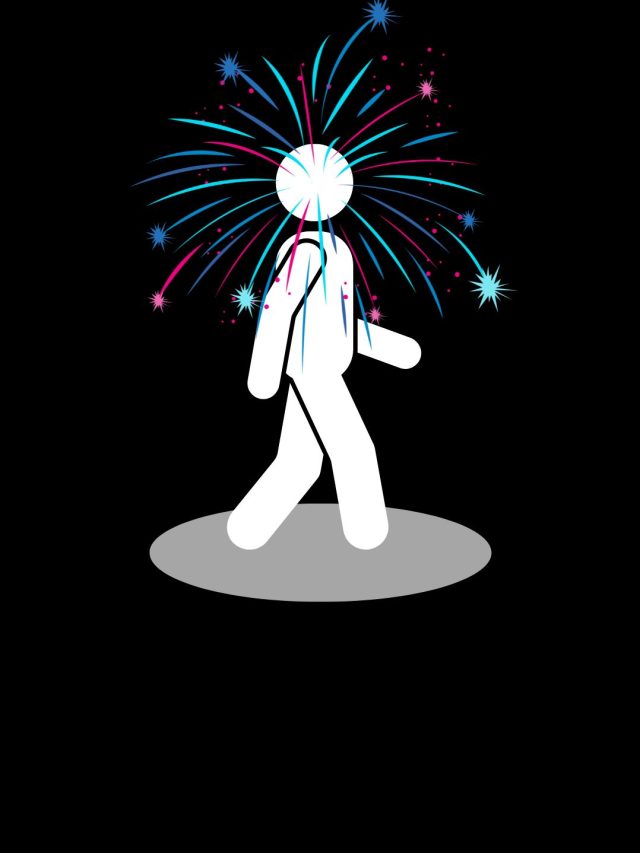If you are a psychology student struggling to understand psychology, these study tips will make learning easier, especially if you are new to the subject. A common problem many psychology students have is that they come from an arts/humanities background and research methods + statistics feel overwhelming. In addition, the foundational material taught in school is often quite different from psychology’s subject matter. So students struggle and feel unprepared to take on a subject that covers statistics, case studies, medical ideas, history, and delicately nuanced concepts. Even though you are prepared to analyze yourselves in lay terms, formal psychology terminology may suddenly change how you see the world around you. And because it is often relatable, it is easy to fast-forward and misinterpret technical ideas.
Studying psychology isn’t like studying physics. Most of the material taught will feel incomplete because the subject is a young science. Over a 10-year career, things learned from textbooks may feel incomplete or outdated. So there is unrest while studying – this doesn’t feel right; it doesn’t make much sense. This becomes a hurdle to intuitive understanding.

To make the most of this article,
- Understand the scope of your psychology curriculum and read each topic’s guidelines below.
- Implement the best study tips from the next section.
- Start using the psychology-specific guidelines in your study routine.
If you are a general life-long learner with no academic commitment, this other learning guide will be more helpful. If you are an educator, perhaps a brain-based teaching system might help you design an efficient course.
- What should you expect from your Psychology Curriculum? And how should you handle the material?
- Best study techniques to use while studying psychology (or any other subject)
- General guidelines to study for psychology
- What to do when you are confused
- Lifestyle choices to study better
- Additional resources to be a good psychology student
- Sources
What should you expect from your Psychology Curriculum? And how should you handle the material?
I will address this question from the bachelor’s and master’s first-year student’s perspectives. These topics aren’t your standard academic electives or course titles; they are broad areas across psychology. You’ll learn them with strong boundaries and then the boundaries between these topics will start to vanish as you progress in your degree.
Personality: Personality is conceptualized in many ways. As a student, you will quickly learn that personality is treated differently by different theorists and analyzed using a wide range of psychological concepts. For example, a common research distinction is state vs. trait theories of personality, and then there are social and cognitive perspectives. Each focuses on different elements of personality and behavior. Sometimes, you may realize personality according to the tools developed to measure it – so studying the tool (typically a large set of standardized survey questions) is essential. For all of this, it’s best to compare and contrast key concepts and link them to their assumptions and methods of exploration.
Behavior: Behavior will most likely be the first material you study since it’s been the core focus of psychology for a century. Behavior is taught based on the principles of reinforcement and conditioning, and then the same is extended to more complex analyses. These concepts are best studied with examples and clearly defined variables. They are easy to understand through classic experiments on animals. Implications from these studies are highly relevant in understanding social psychology and clinical psychology, but students tend to ignore them when theories take a more psychometric and cognitive approach. As a student, continue applying behavior principles to clinical cases.
Disorders: Disorders and general tendencies have a blurry line separating them. You’ll need to clearly understand when something is a disorder to understand the very nature of the disorder. Sometimes, disorders are seen as bio-psycho-social concepts or as a cluster of symptoms. And in other cases, they are derived from personality or cognitive impairments. The best way to study disorders is to ground them in case studies and find similarities/differences in different approaches given by the DSM and ICD. Instead of treating disorders as clearly defined concepts with strong boundaries, pay attention to the mechanisms in play to get a holistic idea.
Social psychology: Social psychology introduces many new terms derived from basic cognitive and behavioral components. These terms may seem odd but focus on connecting them to their cognitive and behavioral roots. Take a holistic picture which includes statistical behavior, demographics, and environmental conditions.
Cognition: Cognition is easy to understand superficially but confusing (to say the least) at a more advanced level. Focus on the basic components of cognition, such as attention and memory, and the experiments designed to theorize how the mind works. It is easier to start understanding cognition with the foundation of sensation and perception. Cognitive processes, which govern how we process information and make decisions, are described with many nuanced concepts. Some are testable and defined according to experimental data, and some are just theorized to exist with no direct way to test them. Learn these concepts with diagrams and words to make cognitive psychology intuitive. Learn allied concepts like top-down vs. bottom-up processes, models of memory, and feedback loops to understand how psychologists build theories about what may be happening inside the mind.
Sensation: Sensation-related topics in psychology require a deep understanding of biology and sensory systems. Visual aids and explainer videos are great ways to study them. Biological components require memorizing. Start with a global understanding of our sensory systems for taste, touch, vision, etc., and then focus on the mechanisms involved in each sense. Connect the sensory pathways to parts of the brain that govern the information coming from these senses. You’ll also learn about psychophysics – the relationship between the nature of information entering our senses and how we interpret it. Psychophysics is experiment-driven, so use that to understand research methodology to put everything in context.
Perception: Perception starts when sensory information is getting processed and what happens after it is processed. It is deeply connected to cognition, so study both hand-in-hand. Cognitive biases, illusions, time perception, games, art, design, advertisements, social media, etc., are a great way to understand theories of perception and perceptual processes in a real-world context. Otherwise, perception (and cognition) may start feeling vague and thus less meaningful. You can use food perception, font psychology, or the kiki-bouba experiment to get a head start.
Neurobiology: To put psychology in context, it must be studied with biology because biology is the material mechanism that constrains mindless theories. Begin with a rough understanding of all the brain’s parts and their functions. Then study the structure and function of neurons and neural connections. Next, look at organizing principles in the brain to help you develop a deeper understanding. These organizing principles include the brain’s structure and how information flows from the body to the brain, from the brain to the body, and within the brain. Finally, since neurobiology is inaccessible, connect it to behavior. The best way to do this as a fresh student is to look at changes in behavior due to diseases or brain damage. They will help you understand what behavior changes when a part of the brain is no longer functioning correctly.
Developmental psychology: Developmental psychology takes the approach of changes throughout the lifespan. This includes pre-natal development, old age adjustment, and everything in between. The core focus is typically stages of development, trends in personality, acquisition of skill, critical periods for learning about language, relationships, risk-taking, and adjustment problems due to changes in social, biological, and environmental demands.
Counseling + Therapy: When it comes to the clinical and counseling side of psychology, you have to study 3 important things: The rationale and philosophy behind a method, the framework and steps involved in a method, and the theory that counts as “evidence-based.” The theory will help you understand the use case for a style of therapy and counseling.
Statistics: Statistics is a way to draw conclusions by “treating” information and reducing it into meaningful insights. To accomplish this, you will study many mathematical concepts and learn to solve problems. Statistics can get relatively abstract and unintuitive for a first-timer, so practice problems you can relate to and work out the statistical methods. Clearly understand the questions statistics tries to answer (What is the most typical value, is there a difference between 2 observations, how certain can we be of these estimates, etc.) First, you’ll learn descriptive statistics, which summarizes many different observations. Once familiar with this, you’ll move on to finding meaning in that summary using inferential statistics. Both statistics have formulae and assumptions – you will need to know them very well to progress without much trouble. Learn the basics and ask as many questions as possible to understand them.
Research methods: Simply put, research methods are a controlled way to collect and analyze raw observable data. Different techniques are used to conduct studies and figure out how variables relate to each other. Each method has pros and cons based on how it is planned, what can be accomplished, and what conclusions are drawn. A single concept can be studied using various research methods, and many studies using many research methods create a body of knowledge. To be a researcher, you will need to study research methods extensively. Even if you aren’t going to be a researcher, research methods will help you understand how you can extract meaningful information from all the noise around you. Think of it as a way to convert chaos into structure.
Best study techniques to use while studying psychology (or any other subject)
Detailed explanations for these techniques are in this article.
- Spaced repetition: Learn facts and review/recall them repeatedly with increasing intervals between each revision or attempt to recall. This counters natural forgetting and strengthens your memory for facts. If you study something right now, revise it 5 mins later, then 20 mins later, then 2 hours later, then the next day, for example. This is best to remember facts, names, and dates. Recall without reading each time. Then review it to see if you were right or wrong.
- Retrieval practice: Practice remembering or recalling facts and details so you know you are not just familiar but can quickly recall them when needed, like during an exam. Mock exams, practice tests, presentations, and casual discussions are excellent for demonstrating your learning.
- Interleaving: Set goals and study similar topics together where you can compare and contrast them and also relate them to each other. This is a better study method than massing (studying long hours without goals), and interleaving improves deep conceptual understanding.
- Metacognition: Think about your learning deeply. Thinking leads to elaborative rehearsal, which quickly transfers new learning to long-term memory. Analyze your learning with question prompts, FAQs, fictional and real stories, and anecdotes. Try to relate what you learn to existing knowledge and experiences. Ask questions when you feel curious and attempt to interpret your learning in new contexts.
- Grounding: Teach what you learn, write, explain it to others, learn case studies, connect them to your life, and use videos, diagrams, apps, and information organizers like indexes and infographics to increase familiarity and fluency in a topic. Ground your learning in some interaction in the real and digital world.
Related: Tests can add a different kind of anxiety in the testing room or exam hall. Follow these quick behavioral techniques to reduce test anxiety there and then. They include using smells, relaxation techniques, placebos, clothing hacks, etc.
General guidelines to study for psychology
These tips will help you ace psychology tests and also prepare you for a career in psychology.
- Keep a handy glossary or use the oxford psychology dictionary[1].
- Memorize theorists and their theories/ideas using spaced repetition and retrieval practice.
- Use metaphors and examples abundantly – they will help you grasp new concepts and then add details to change metaphors into concrete details.
- Use quizzes to periodically test yourself.
- Use “chunking” – a process of grouping information together in a meaningful, cohesive way. It helps in compressing information so it is easier to digest.
- Take effective notes outlining concepts, examples, diagrams, dates, and famous theorists.
- Compare and contrast all concepts till you know their definitions and can put them in your own words.
- Learn the meaning of broad philosophies like biopsychosocial, behaviorism, connectionist, cognitivism, computational, etc.
- Learn key terms and practice using those terms to explain psychological phenomena. E.g., say, “If a person can’t remember OTPs, their working memory may have retroactive interference from other numerical data.” instead of saying, “The person has a bad memory.”
- Practice statistical problems a lot till they become intuitive; thinking statistically is a core skill for psychologists.
- Keep fun charts for basic facts about brain anatomy and the different kinds of theories in psychology as wallpapers and PDFs. Keep reviewing till you are familiar.
- Share your learning in appropriate contexts because sharing concepts using words strengthens your memory.
- Understand basic neural mechanisms so it is easier to interpret newer studies during your research.
- Implement what you learn in the classroom in your life. Knowing how the brain works should make psychology students excellent learners – they would know how memory and attention work, how we forget, how rewards affect us, etc., within the first year of study.
What to do when you are confused
- Revise the key terms and learn examples.
- Figure out which words are hard to understand and study them again using a wide variety of sources – variety improves the depth of understanding.
- Look at cases and stories; they may help.
- If stories and cases don’t help, try images and explainer animations, considering they help you take a big-picture view and look at details simultaneously.
- Ask questions.
- Try to connect your learning to something you’ve already experienced.
- If all of this fails, chances are the confusion is really a feeling of unfamiliarity, so continue studying it and then take a break – the brain will mostly synthesize the information on its own. You’ll realize something has clicked, and you “get” it after a few days.
Lifestyle choices to study better
- Have a healthy diet that promotes biological health and cognitive health (Foods to maintain brain health).
- Manage diseases and stress.
- Improve the quality of your sleep. Sleep deprivation impairs memory and comprehension.
- If you are bored, try to use a more fun way to study – by creating videos, Instagram posts, blogs, etc. In the process, you’ll acquire the knowledge and develop additional vocational skills.
- Remember to have fun as a college student; the brain functions better when there is a healthy study-life balance.
Additional resources to be a good psychology student
- How to learn from videos and take effective notes
- Study habits to avoid
- Effective study tips based on research
- Scope of psychology
- How to reduce procrastination
- How to manage phone addiction
- Online psychology resources
Sources

Hey! Thank you for reading; hope you enjoyed the article. I run Cognition Today to capture some of the most fascinating mechanisms that guide our lives. My content here is referenced and featured in NY Times, Forbes, CNET, and Entrepreneur, and many other books & research papers.
I’m am a psychology SME consultant in EdTech with a focus on AI cognition and Behavioral Engineering. I’m affiliated to myelin, an EdTech company in India as well.
I’ve studied at NIMHANS Bangalore (positive psychology), Savitribai Phule Pune University (clinical psychology), Fergusson College (BA psych), and affiliated with IIM Ahmedabad (marketing psychology). I’m currently studying Korean at Seoul National University.
I’m based in Pune, India but living in Seoul, S. Korea. Love Sci-fi, horror media; Love rock, metal, synthwave, and K-pop music; can’t whistle; can play 2 guitars at a time.



























